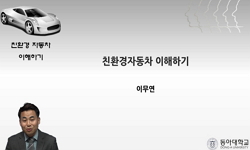The ideal fuel cell operating strategy concerning water transfer is to keep the ionomer membrane fully saturated and avoid the unfavorable water condensing. In this work, the theoretical models are developed and utilized to set up an optimal water man...
http://chineseinput.net/에서 pinyin(병음)방식으로 중국어를 변환할 수 있습니다.
변환된 중국어를 복사하여 사용하시면 됩니다.
- 中文 을 입력하시려면 zhongwen을 입력하시고 space를누르시면됩니다.
- 北京 을 입력하시려면 beijing을 입력하시고 space를 누르시면 됩니다.
https://www.riss.kr/link?id=A76528561
- 저자
- 발행기관
- 학술지명
- 권호사항
-
발행연도
2008
-
작성언어
Korean
- 주제어
-
KDC
550
-
자료형태
학술저널
- 발행기관 URL
-
수록면
51-54(4쪽)
- 제공처
-
0
상세조회 -
0
다운로드
부가정보
다국어 초록 (Multilingual Abstract)
The ideal fuel cell operating strategy concerning water transfer is to keep the ionomer membrane fully saturated and avoid the unfavorable water condensing. In this work, the theoretical models are developed and utilized to set up an optimal water management strategy preventing liquid water formation in the reactant supplying channels. It is further applied to find out the required humidity level of reactant feed streams satisfied with full saturation levels at the channels outlets as a function of the physical operating conditions (i.e., pressure, temperature, and fuel/oxidant utilization) with a gradual temperature increase in the coolant. In this model, the analytical results showed that the favorable water transport scenario (half of produced water transported back to anode) requires less humidification at the .gas channel inlets compared to the worst scenario (10% of the produced water diffused back to anode). It was also shown that for 80℃ operation of fuel cells, the reactants should be super-saturated and the coolant temperature difference less than 5℃ between the inlet and outlet has a significant effect on the humidification of reactant gases.
목차 (Table of Contents)
- Abstract
- 1. 서론
- 2. 해석 모델
- 3. 결과 및 고찰
- 4. 결론
- Abstract
- 1. 서론
- 2. 해석 모델
- 3. 결과 및 고찰
- 4. 결론
- 참고문헌
동일학술지(권/호) 다른 논문
-
- 대한기계학회
- 정봉부(Bong Bu Jung)
- 2008
-
- 대한기계학회
- 이상주(Sang-Joo Lee)
- 2008
-
금속기 복합재료 제조를 위한 예비성형체의 압축강도 평가
- 대한기계학회
- 송태훈(T. H. Song)
- 2008
-
- 대한기계학회
- 신승하(Seungha Shin)
- 2008




 DBpia
DBpia




